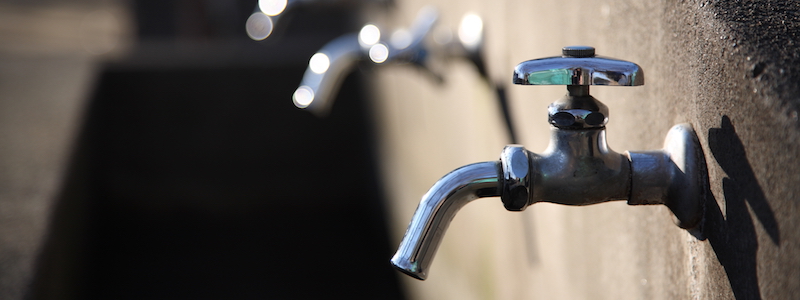Metered utilities include denki (電気, electricity), gasu (ガス, gas), and water & sewerage (“suidou” / “水道”). If your landlord has not set them up for you, you will have to do so yourself when you move in by calling each company and providing them with your name, new address and preferred billing method. You will also need to notify each company before moving out to terminate utility service. While the phone numbers listed below will connect you to Japanese operators, you can request an English speaker by asking, “Eigo hanaseru hito imasuka?”.
Utility bills can be paid automatically by credit card or bank transfer (“furikomi” / “振込”) after filling out the appropriate application forms. Otherwise, a bill will arrive each month (every two months for water) that can be paid in cash at convenience stores, post offices, utility offices and banks.
Electricity
It is advisable to apply by phone before you move in. Though the electricity supply is usually left on when someone moves out, if you use electricity without registering your information with the electric company, your service is likely to be cut until you do. If the property has an electric boiler, it will usually need to be activated by electric company staff, so you will need to make an appointment with them.
Tokyo Electric Power Company (TEPCO) is the provider of electricity to the Kanto region including Tokyo and Yokohama, as well as Yamanashi and parts of Shizuoka. You can get an English brochure “A Guide to Electricity”, either by mail or on the website, which provides valuable information on rules, instructions and troubleshooting procedures.
Gas
There are broadly two types of gas used in Japan – natural gas (“Toshi gas” / “都市ガス”), and liquid propane (“LP Gas” / “LPガス”). Toshi gas (literally “city gas”) is the norm in urban and suburban areas, while LP Gas is used in rural areas where there is no gas mains line. Within the blanket term “Toshi gas” there are many subtypes, so before purchasing gas appliances make sure they are compatible with your home’s gas supply.
Gas boilers are the most common type of water heater in Japan, and many properties also have lines in the kitchen to attach gas stoves for cooking. Unlike electricity and water, the gas supply is always cut for safety reasons at the end of each contract. As such, it is necessary to arrange an appointment with the gas company to open your account. While it is advisable to call in advance, it is usually possible to arrange this on the same day. The gas company will send a representative to check and activate the gas lines.
Always make sure to ventilate the room when using gas appliances. The smell of gas may signal a lethal gas leak, which causes suffocation and fires. Check the Tokyo Gas Emergency Procedures for procedures during leaks and earthquakes.
Water
Tap water in Japan has been treated and is safe for drinking.
The mains water supply may or may not be cut between contracts. If the water line is cut, it can be opened by turning the mains handle to the left. The handle is usually attached to the water meter, found inside a metal door in the corridor of some apartment buildings, or under a metal grate at some other properties.
Call to apply for service before you move in and inquire if you are in an area which accepts payment with your credit card. Just call customer service to request the “payment by credit card” application form.
